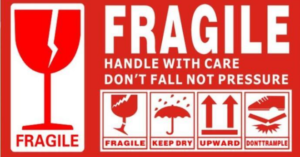Safetyism

“I can’t talk to him about not doing his work”, my co-worker complained; “I already had a suicide”, she explained. As we proceeded to talk about strategies of how to tell this underperforming employee he was not doing his job my friend told me this employee started to cry when she spoke of his performance. She was given this employee over two years ago, and he has shown no sign of improvements; now he is her problem. While employees have rights, her fear of him being suicidal is preventing her from releasing him from the job. Even the terms “being released” or “let go” are preferable to just being “fired”. Even if this employee is deemed unable to stay in the job, he will probably be allowed to resign before being fired.
I wondered where this new, softer thinking about how we approach workers came from. After reading, The Coddling of the American Mind: How Good Intentions and Bad Ideas Are Setting Up a Generation for Failure by Greg Lukianoff and Jonathan Haidt, I realized that this “coddling” thinking is popular in today’s society.
Lukianoff and Haidt speak of three bad ideas or untruths; “the Untruth of Fragility: What doesn’t kill you makes you weaker, the Untruth of Emotional Reasoning: Always trust your feelings, and the Untruth of Us Versus Them: Life is a battle between good people and evil people” (Lukianoff and Haidt 2018, 4). Not only are these untruths seen in work situations, but it also seems prevalent with the parents of the children and youth in the church. Parents want their children protected from the rigors of Bible study, since it may interfere with their school work, thereby not allowing their children to be stretched by studying both school work and the Bible. Lukianoff and Haidt speak of this protection from emotional discomfort and equating emotional discomfort with physical danger as “safetyism” (Lukianoff and Haidt 2018, 29).
Parents and other adults may be guilty of trying to keep the world safe for their children and youth, but a careful study of the Bible shows that this is something we can entrust to Jesus our savior. The Bible has much to say about being safe such as Psalm 46:1, “God is our refuge and strength, a very present help in trouble” as well as the entire Psalm 91, and especially verse 11, “For He will give His angels charge concerning you, to guard you in all your ways”.
While there are real dangers that children need protecting from, Lukianoff and Haidt suggest preparing children for the road by letting them take small risks and learning from getting some bumps and bruises (Lukianoff and Haidt 2018, 237). Encouraging children to add more to their agenda, especially adding the Biblical disciplines of reading and studying the Bible will help them learn of God’s love and protection over them when they experience adversity in this unsafe world. While Lukianoff and Haidt are not focused on the Bible for answers, as Christians, this is our first line of defense as well as our offense against the trouble and an unsafe world.
Reference
Lukianoff, Greg, and Jonathan Haidt. The Coddling of the American Mind: How Good Intentions and Bad Ideas Are Setting Up a Generation for Failure. London: Penguin Publishing Group, 2018.
4 responses to “Safetyism”
Leave a Reply
You must be logged in to post a comment.
So true, Mary. I resonated with the quote in the book, “Prepare the child for the road, not the road for the child” (23). I appreciate your passion for Christian Education in children. I think we have all underestimated the importance upon the holistic preparation of children. Thank you for contending for it.
I love this, “Parents and other adults may be guilty of trying to keep the world safe for their children and youth, but a careful study of the Bible shows that this is something we can entrust to Jesus our savior”, amen. There is a thin line between coddling and control and both are not good. Are you finding that parents are just as illiterate when it comes to the bible as the kids?
Yes, Mario. That’s the problem or they do not see the value in learning the Scriptures.
I like your application of the book to the church context and home context. In the name of ‘loving’ the children, many parents prevent the children to learn from the challenges of life and this may probably explain the incompetence of the employee that you’ve quoted in your blog.